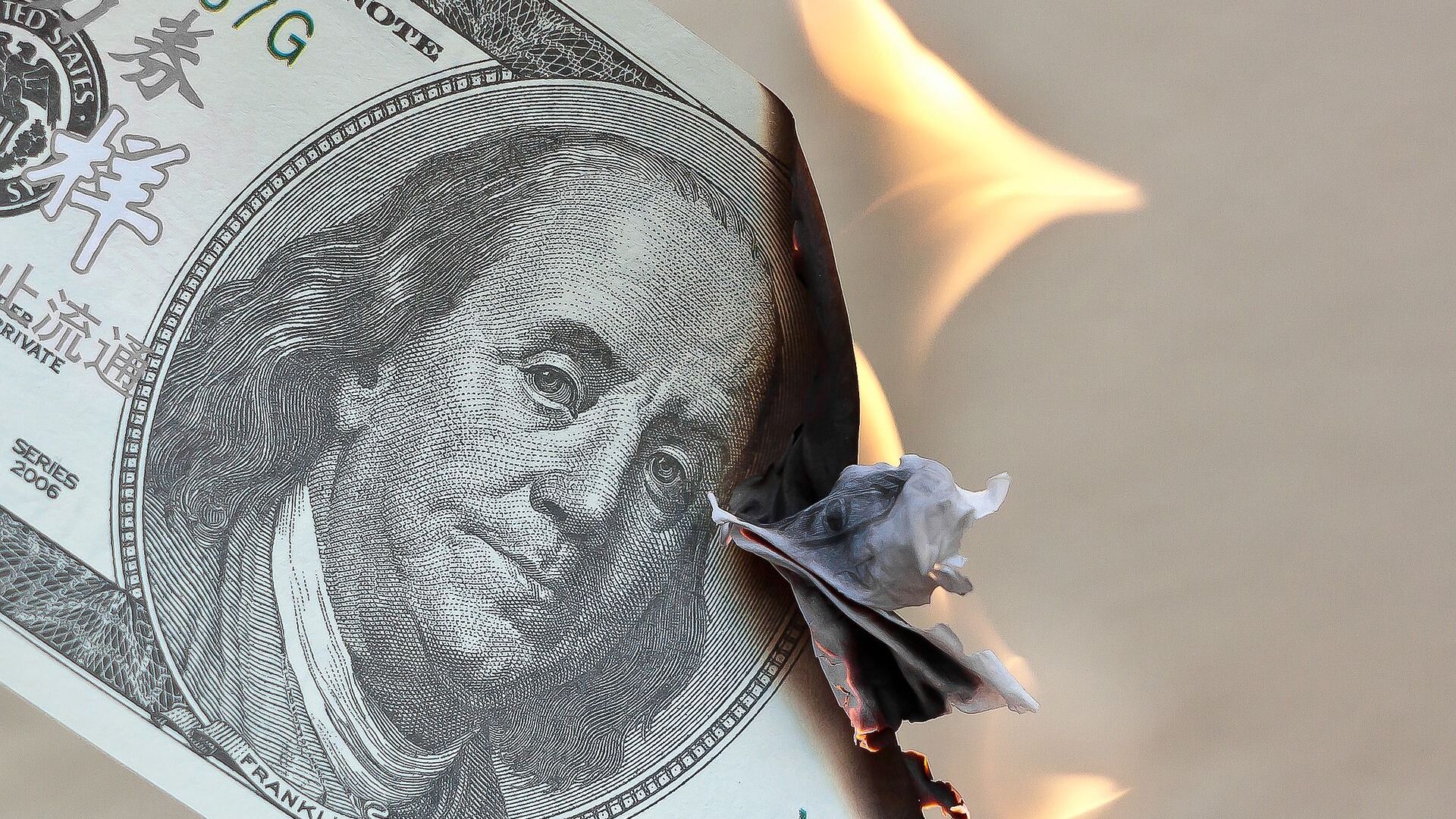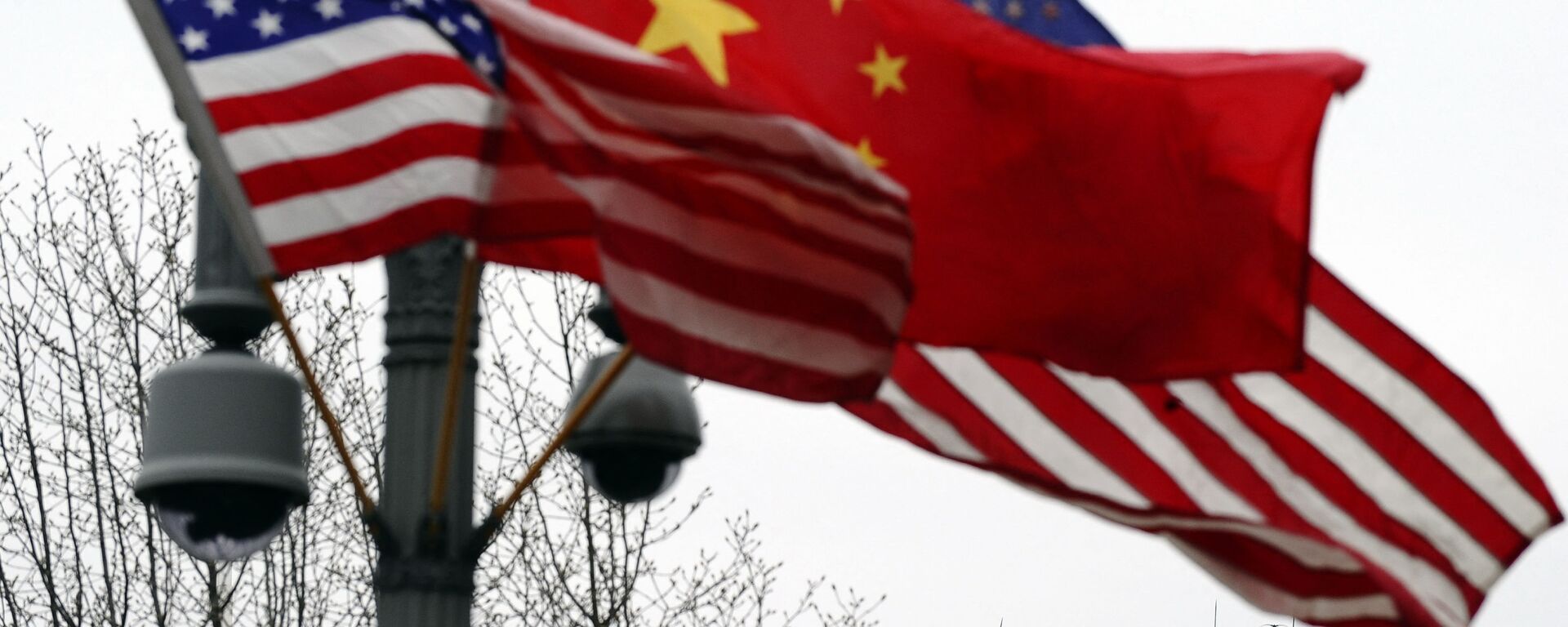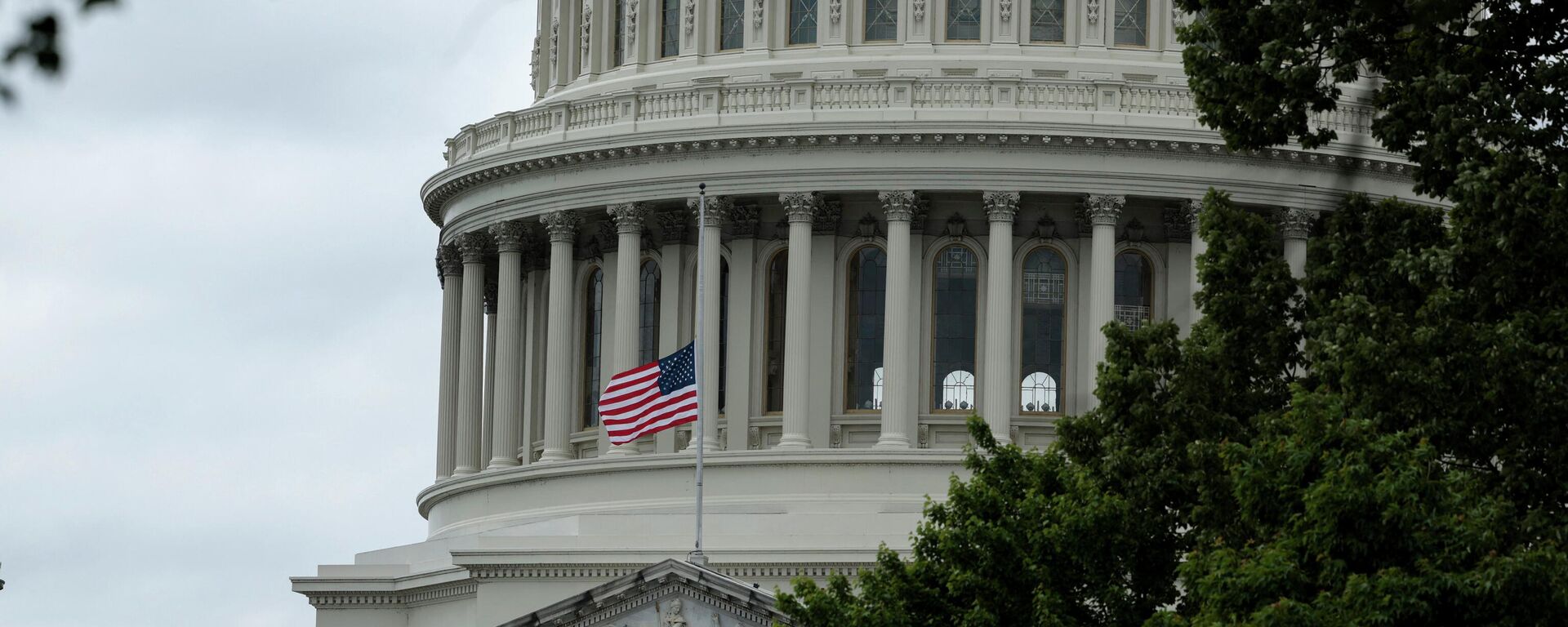https://sputnikglobe.com/20220521/washingtons-ukraine-aid-spending-may-affect-us-economy-experts-warn-1095688076.html
Washington's Ukraine Aid Spending May Affect US Economy, Experts Warn
Washington's Ukraine Aid Spending May Affect US Economy, Experts Warn
Sputnik International
MOSCOW (Sputnik), Kirill Krasilnikov - The US economy could encounter ramifications, including stronger inflationary pressure, due to Washington's plans to... 21.05.2022, Sputnik International
2022-05-21T13:38+0000
2022-05-21T13:38+0000
2022-05-21T13:38+0000
us
ukraine
us economy
deficit
https://cdn1.img.sputnikglobe.com/img/107963/97/1079639749_0:146:1920:1226_1920x0_80_0_0_7da62549fd722a235b7b615c464dee32.jpg
On Saturday, the White House said that US President Joe Biden signed a bill to provide $40 billion in aid to Ukraine. Earlier on Thursday, the US Senate passed the Ukraine Supplemental Aid Package bill in a 86-11 vote, with the opposition coming from Republicans, including Rand Paul and Josh Hawley, who raised concerns about the allocation's potential impact on the US economy and other domestic priorities. The House passed the legislation earlier in May in a 368-57 vote. The new package comes on top of $4.5 billion in military aid Washington has already committed to Kiev.Senator Paul said this week that the United States will have to borrow money from China as it does not have any money to send to Ukraine. The senator added that Washington "cannot save Ukraine by dooming the US economy."Aid and DeficitThe US has been experiencing a bout of high inflation, with the US Department of Labor announcing that a new 40-year record was set in March as the consumer price index rose by 8.5% from a year ago. Thus, the government will have to find ways to get needed funds without further disrupting the economy.Gloria Shkurti Ozdemir, a foreign policy researcher at the Turkey-based SETA Foundation, drew parallels with a similar statement from Paul in 2020 regarding the COVID-19 stimulus packages. She pointed out that back then such claims were dismissed as incorrect and it was suggested that the Federal Reserve would cover most of the cost.The expert also described Paul's statements as political as the senator touches upon the issues of grave economical situation and dependency on China to elicit sympathy from the general public.Meanwhile, Marshall Auerback, a market analyst and research associate at the Levy Economics Institute of Bard College, does not think the US is facing any major financial restraint when it comes to additional spending on Ukraine's defense."The only real constraint is a real resource constraint, and the US continuing to prosecute a proxy war vs Russia is likely to exacerbate those inflationary pressures, especially in the food and energy complex, where both Ukraine and Russia are significant marginal producers," Auerback said.Guns and ButterSpeaking with Breitbart News, Senator Paul said that his colleagues see social spending as bad but are for it when spending is military-related. He then referenced a bipartisan consensus, with the Democrats increasing social welfare and the Republicans supporting more military spending.According to Paul Gottfried, a political theorist and former Horace Raffensperger Professor of Humanities at Elizabethtown College, the Republicans tend to complain about government spending but then do exactly what they accuse the Democrats of doing."The Republican Party is heavily subsidized by defense industries and has never seen a bill that favors its sponsors that it can turn down," Gottfried added.Singh, for his part, says that despite some Republicans claiming to oppose government programs, most of them tend to vote to keep them since such initiatives are popular and going against them brings political risks, even though social programs drive the deficit and debt much more than the defense spending."At the same time, I think the bulk of Republicans, like Democrats, see the aid to Ukraine as a special case," the professor concluded.
https://sputnikglobe.com/20220520/us-senator-says-washington-will-have-to-loan-money-from-china-to-send-40bln-to-ukraine-1095657244.html
https://sputnikglobe.com/20220518/biden-is-giving-40b-to-ukraine-heres-what-that--would-buy-here-1095590393.html
https://sputnikglobe.com/20220519/reckless-ukraine-aid-spending-could-haunt-biden-most-of-congress-at-midterms---experts-1095644807.html
ukraine
Sputnik International
feedback@sputniknews.com
+74956456601
MIA „Rossiya Segodnya“
2022
Sputnik International
feedback@sputniknews.com
+74956456601
MIA „Rossiya Segodnya“
News
en_EN
Sputnik International
feedback@sputniknews.com
+74956456601
MIA „Rossiya Segodnya“
Sputnik International
feedback@sputniknews.com
+74956456601
MIA „Rossiya Segodnya“
us, ukraine, us economy, deficit
us, ukraine, us economy, deficit
Washington's Ukraine Aid Spending May Affect US Economy, Experts Warn
MOSCOW (Sputnik), Kirill Krasilnikov - The US economy could encounter ramifications, including stronger inflationary pressure, due to Washington's plans to deliver a $40-billion assistance package to Ukraine, experts told Sputnik.
On Saturday, the White House said that US President Joe Biden signed a bill to provide $40 billion in aid to Ukraine.
Earlier on Thursday, the US Senate
passed the Ukraine Supplemental Aid Package bill in a 86-11 vote, with the opposition coming from Republicans, including Rand Paul and Josh Hawley, who
raised concerns about the allocation's potential impact on the US economy and other domestic priorities. The House passed the legislation earlier in May in a 368-57 vote. The new package comes on top of $4.5 billion in military aid Washington has already committed to Kiev.
Senator Paul said this week that the United States will have to borrow money from China as it does not have any money to send to Ukraine. The senator added that Washington "cannot save Ukraine by dooming the US economy."
The US has been experiencing a
bout of high inflation, with the US Department of Labor announcing that a new 40-year record was set in March as the consumer price index rose by 8.5% from a year ago. Thus, the government will have to find ways to get needed funds without further disrupting the economy.
"Technically, Paul is correct - the US needs to finance its deficit and debt, and so unless the government either increases taxes or cuts social spending, it has to borrow," Robert Singh, a professor of politics at Birkbeck, University of London, said, noting that the Beijing has been purchasing US Treasury bonds for decades.
Gloria Shkurti Ozdemir, a foreign policy researcher at the Turkey-based SETA Foundation, drew parallels with a similar statement from Paul in 2020 regarding the COVID-19 stimulus packages. She pointed out that back then such claims were dismissed as incorrect and it was suggested that the
Federal Reserve would cover most of the cost.
"So, here we are again with Senator Paul making similar comments about the aid to Ukraine. Paul's statements are at some point correct in the sense that this aid is very large and it will have a great impact on the American economy, especially when the inflation has reached very high levels and the U.S. economy is struggling," Shkurti stated, adding that she does not believe China will be the main source of money and that an important role may be played by the Fed.
The expert also described Paul's statements as political as the senator touches upon the issues of grave economical situation and dependency on China to elicit sympathy from the general public.
Meanwhile, Marshall Auerback, a market analyst and research associate at the Levy Economics Institute of Bard College, does not think the
US is facing any major financial restraint when it comes to additional spending on Ukraine's defense.
"The only real constraint is a real resource constraint, and the US continuing to prosecute a proxy war vs Russia is likely to exacerbate those inflationary pressures, especially in the food and energy complex, where both Ukraine and Russia are significant marginal producers," Auerback said.
Speaking with Breitbart News, Senator Paul said that his colleagues see social spending as bad but are for it when spending is military-related. He then referenced a bipartisan consensus, with the Democrats increasing social welfare and the Republicans supporting more military spending.
According to Paul Gottfried, a political theorist and former Horace Raffensperger Professor of Humanities at Elizabethtown College, the Republicans tend to complain about government spending but then do exactly what they accuse the Democrats of doing.
"The Republican Party is heavily subsidized by defense industries and has never seen a bill that favors its sponsors that it can turn down," Gottfried added.
Singh, for his part, says that despite some Republicans claiming to oppose government programs, most of them tend to vote to keep them since such initiatives are popular and going against them brings political risks, even though social programs drive the deficit and debt much more than the defense spending.
"At the same time, I think the bulk of Republicans, like Democrats, see the aid to Ukraine as a special case," the professor concluded.




